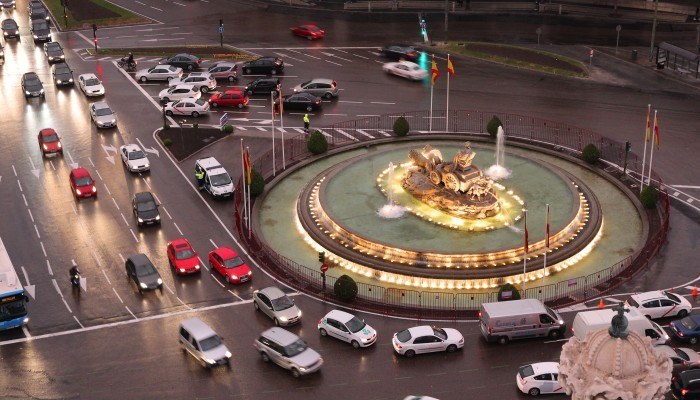Here at startrescue.co.uk, we understand better than most that driving abroad can be an extremely stressful experience that has the potential to ruin any holiday - or disrupt any business trip. Adapting to foreign driving styles, desperately trying to decipher road signs, as well as constantly reminding yourself to drive on the right can cause even the calmest amongst us to become a bewildered breathless Brit. When you add to that list the fear of breaking a foreign driving law, you’ll discover that many people are reluctant to get behind the wheel of a car on distant shores.
That’s where we at startrescue.co.uk step in by trying to help keep you up to date on any recent changes to road laws that may affect you. So if you’re planning to drive in Spain this summer then be aware (and read on) that new traffic laws are now in place that affect all road users.
Below are 15 of the biggest changes that may affect you:
- One of the new laws prohibits the use of speed camera detectors. Any driver caught using them will incur a fine of 200 Euros as well as the loss of three points on their licenc
se. The use of a speed camera jammer is considered much more serious an offense and could result in penalties of 6,000 Euros and six points off the driving permit. Only alert systems offering information about the locations of speed cameras based on databases are now legal. Drivers with GPS devices incorporating speed camera detection capabilities will have to deactivate this option - Pedestrians caught violating a traffic regulation – by crossing the road at the wrong place for instance – will be obligated to submit to a drug and alcohol test.
- Vehicles can be denied entry to certain roadways based on ‘environmental’ reasons. The Environment Ministry will establish the exact rules governing this point.
- There are now minimum speed restrictions for bicycles - this change was to resolve the problems faced by cyclists in urban areas. The speed limit for all bicycles on all road types is 45km/h, while the new minimum is half that speed (23km/h). Motorways are off-limits to cyclists.
- Tow trucks assisting motorists have right of way - treat them the same way as ambulances.
- Obstructing health department or traffic inspectors executing checks on driving schools and other vehicle-related centres is now considered an offense.
- Wearing a helmet in urban areas is now mandatory for all cyclists under 16. Failure to do so will result in fines of 200 Euros for parents.
- All foreign residents must now register their vehicles because, until now, all foreigners living in Spain were not under any obligation to register their cars - this meant it was difficult to make them pay traffic fines or submit to controls.
- Police now have the ability to fine vehicles without stopping them if they are performing duties that inhibit them from doing so - such as pursuing another vehicle.
- Drivers will now almost always be held accountable in the event of a collision with a game animal. This can only be overturned if it can be proven that the animal was on the road as a result of a hunt held that day or within 12 hours of one having taken place. To add to this, the state will only be liable for the collision if they failed to provide adequate warning signals or to mend broken fences. This unfortunately means that no compensation will be awarded in the event of a driver being killed or seriously injured after a collision with an animal on one of Spain’s 25,000 hunting preserves.
- Under the new ruling, the 50 percent discount for early payment of fines has been extended to 20 days – it used to be 15 days.
- Children (under 16 years old) less than 1.35 metres tall are no longer able to sit in the front seat of a vehicle. Police will have the ability to stop and fine drivers carrying children in the front passenger seat. This is unless all the back seats are already taken up by other children also under the height limit, or because the car has no back seats. Taxis also have to adhere to the same rules however, parents - not taxi drivers - will be held liable for fines of up to 200 Euros.
- Dropping anything on the road will result in high penalties due to “the danger it poses to other road users”.
- Authorities are also able to immobilize vehicles being driven without the proper permit (a C permit in the case of vehicles weighing between 3,500kg and 7,500kg; and a D permit in the case of buses), as well as those without the correct safety equipment for children.
- Driving with twice the legal limit of alcohol in the blood will result in a fine of up to 1,000 Euros - previously 500. Anyone caught operating a vehicle under the influence of alcohol twice within the same year will be hit with a 2,000-euro fine.
We hope that this information helps to make your trip to España a safe and memorable one. Please remember, road laws might change, but a startrescue.co.uk European breakdown policy, as well as a starttravel.co.uk travel insurance policy, remain as affordable and reliable as ever. Get a quote today to ensure you’re not only wise to foreign traffic laws, but you’re also covered for any unwanted breakdowns or travel claims while on the continent.
Lastly, we have attempted to advise you of the 15 changes to Spanish traffic laws that we thought would impact (or interest) our policyholders the most. This list therefore is not exhaustive and we highly recommend checking offical web sites for a more detailed insight into Spanish road laws, as well as future developments.
¡Felices vacaciones!
By Jake Cooper






